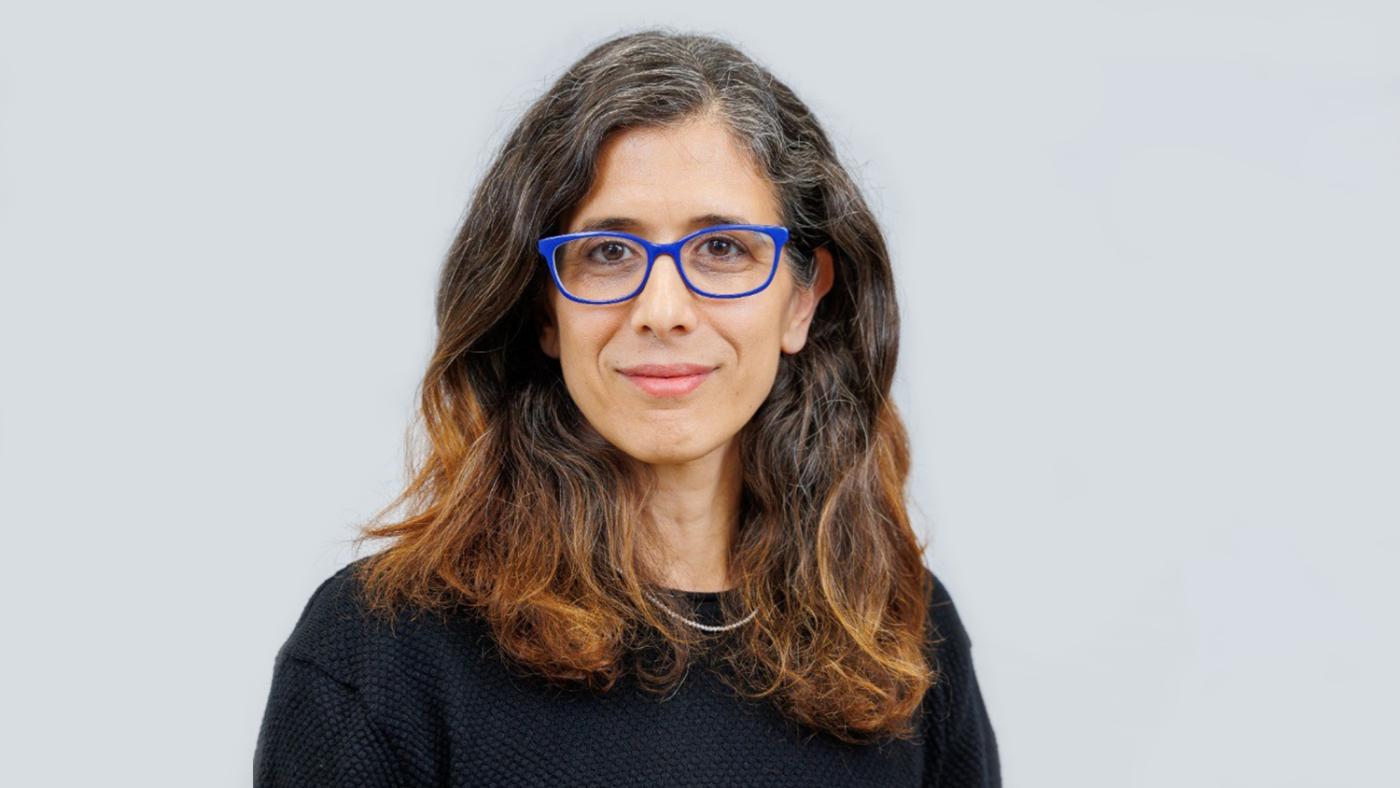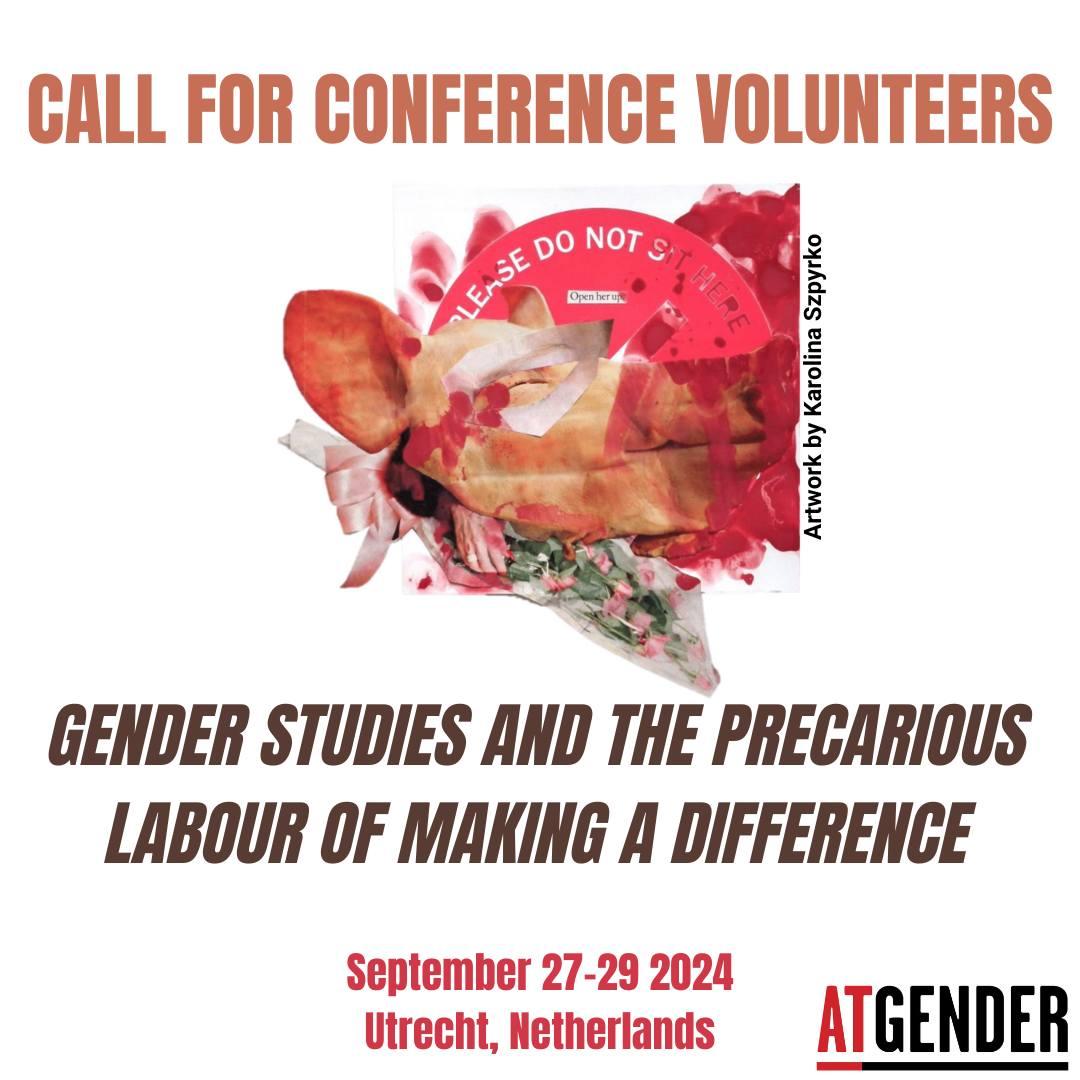Academic boycott
Israeli scientist banned from Atgender conference held in UU building

Israeli scholar and activist Rachel Levi Herz was one of the organisers of Atgender, the conference of the European Association for Gender Research. She wanted to discuss a collaboration between Palestinian and Israeli-Jewish scholars and students striving to end the war in Gaza. Still, after months of work, Atgender's board suddenly asked her to step down because she works at Bar-Ilan University, in Israel. DUB had access to letters exchanged between the Israeli scholar and Atgender's board.

Rachel Levi Herz. Photo: courtesy of the scholar
Congress
Atgender is an association of institutions, scientists, activists and practitioners focusing on women's and LGBTIQ+ rights, feminism, sexuality and diversity. Once every three years, Atgender organises a conference at a European university. The conference that happened between September 27 and 29 was held in Utrecht, and the organisers booked a room at the university for part of the programme. The university itself was not involved with the organisation of this conference, but several scientists from UU spoke there.
Early involvement
Levi Herz got involved with the organisation of the Utrecht conference over a year ago. The researcher says she has been working for Atgender for years, so she could help the organisers brainstorm themes for the conference early on.
Levi Herz quickly came up with a topic, inspired by the collaboration between Palestinian and Jewish-Israeli students and scientists in the Master's in Feminist Activism, in which she is one of the teachers. This collaboration is particularly important in times of war, violence, and terror. “Women, gender minorities and children pay the highest price at wars,” Levi Herz says in a video call from Israel. “I wanted to talk about the initiatives of Palestinian and Jewish-Israeli scientists who are fighting to end the war.”

Gaza
Her idea was approved by Atgender in the fall of 2023 and she started working with three other researchers and activists from the association. The topic was then presented to other scientists, who would assess the four organisers.
“It may be a small thing, but it was important to me in retrospect. An activist from Gaza submitted an abstract that did not get a very good review and I said: 'Even though it is not academically strong, I think it should be heard because of how women and gender minorities are suffering in Gaza.”
"I wanted to discuss all the positions of feminist activists in Israel and Gaza. The whole idea of the topic for the conference was to highlight the complexity of the situation and the high price that women pay in wartime. I personally understand that this discussion can be difficult, but I felt it was very important to acknowledge these difficulties.”
In the months that Levi Herz worked on the theme for the congress, the situation in Gaza deteriorated. In January 2024, the International Court of Justice stated that Israel should prevent genocide in Gaza. Pro-Palestine then demonstrators protested on university campuses worldwide, demanding an academic boycott of Israeli institutions.
In March, Atgender's board responded to this call by publishing a statement in solidarity with the BDS Movement, which stands for "Boycott, Divestment and Sanction". In addition, Atgender signed an open letter by Dutch Scholars for Palestine, which also advocates an academic boycott, calling on European governments, universities and institutions to break their ties with Israeli universities as they “perpetuate genocide and apartheid”.
Academic boycott
The relationship between Levi Herz and Atgender deteriorated after the statement. The organisation says it had a hard time with her participation in the conference, due to her affiliation with Bar-Ilan University. On April 1, she had a video call with the board, a conversation Levi Herz experienced as aggressive.
“They asked me to step down. It was a very difficult conversation for me. They apologised several times, saying it was very inconvenient to sign the BDS declaration after using my academic work. I refused, saying they knew who I was.”
Atgender says it is following the BDS guidelines, but the movement only advocates an academic boycott of Israeli institutions, not of individuals. On BDS' website, the movement says it rejects “the boycotting of individuals based on their identity”, advising against boycotting individual Israeli academics “solely because of their affiliation with a complicit university”.
But that is exactly what Atgender did. On April 10, the board removed Levi Herz's name from the organisation. In a statement, the association said that, in light of the atrocities in Gaza, no distinction could be made between individual scientists and the institutions for which they work. This would give the impression that one of the coordinators of the conference represented an Israeli university. The board also stated that it did not feel bound by previous agreements made with the scholar.
Levi Herz can't understand that decision. “I represent the people in Israel who fight to change the government and stop the war. If you don't allow people like me to talk, what are our options? What is left for me to do in this horrific reality? Missile attacks happen every day, I'm worried about my children all the time, it's very difficult everywhere. I do not ignore that it's much more difficult in Gaza, but people like me should be allowed to talk so that we're able to represent all sides and talk about it in a more complex way.”
It took Herz a long time to come to terms with this experience. “I feel like I’ve lost my academic home. It's not in line with feminist thinking to discriminate against someone under war. Women are in danger in Gaza and Israel, and justice must be sought for all women. Populism is rising all over the world and it’s becoming increasingly difficult for people to bear the complexity of situations.”
Disturbing
Bar-Ilan University arranged for a lawyer for her. The lawyer approached the Dutch Minister of Education, Eppo Bruins, who qualified the incident as "absolutely unacceptable" in an article published by the newspaper Telegraaf. “It's a shame that this happened and, just like Utrecht University, I believe the choices Atgender has made are morally wrong. This attitude damages the core of what science and universities stand for.”
As the minister indicated, Utrecht University also disapproved of the decision to ban Levi Herz. In a written response, UU states: “Atgender's decision to exclude a scientist from the conference based on her nationality and affiliation with an Israeli university was disturbing and inappropriate. It is not in line with our role in society and goes against our aim not to isolate Israeli scientists, something we believe in just as strongly as we believe in supporting our Palestinian counterparts.”
Atgender is not part of UU, so the university does not influence the conference. Due to contractual agreements, UU could not prevent part of the conference from taking place on its premises. Lastly, the university says it is “not feasible” to check all events organised at UU.
“The dean of the Faculty of Humanities asked Atgender to explain the situation. In addition, a request was made to remove Utrecht University from the website as a ‘supporter’ of the conference,” the university states. Rector Henk Kummeling also contacted the rector of Bar-Ilan University personally.
Reacting to the criticism, Atgender says in a written statement that no one was banned from the conference. “Atgender rejects all forms of discrimination and is based on the principles of inclusion and solidarity”. The board “rejects” Telegraaf's article about Levi Herz and calls the allegations against Atgender “incorrect and unfounded”.
DUB requested an additional response after its editors saw the correspondence between Atgender's board and Levi Herz, which shows that she has been banned from the organisation. Atgender did not respond.